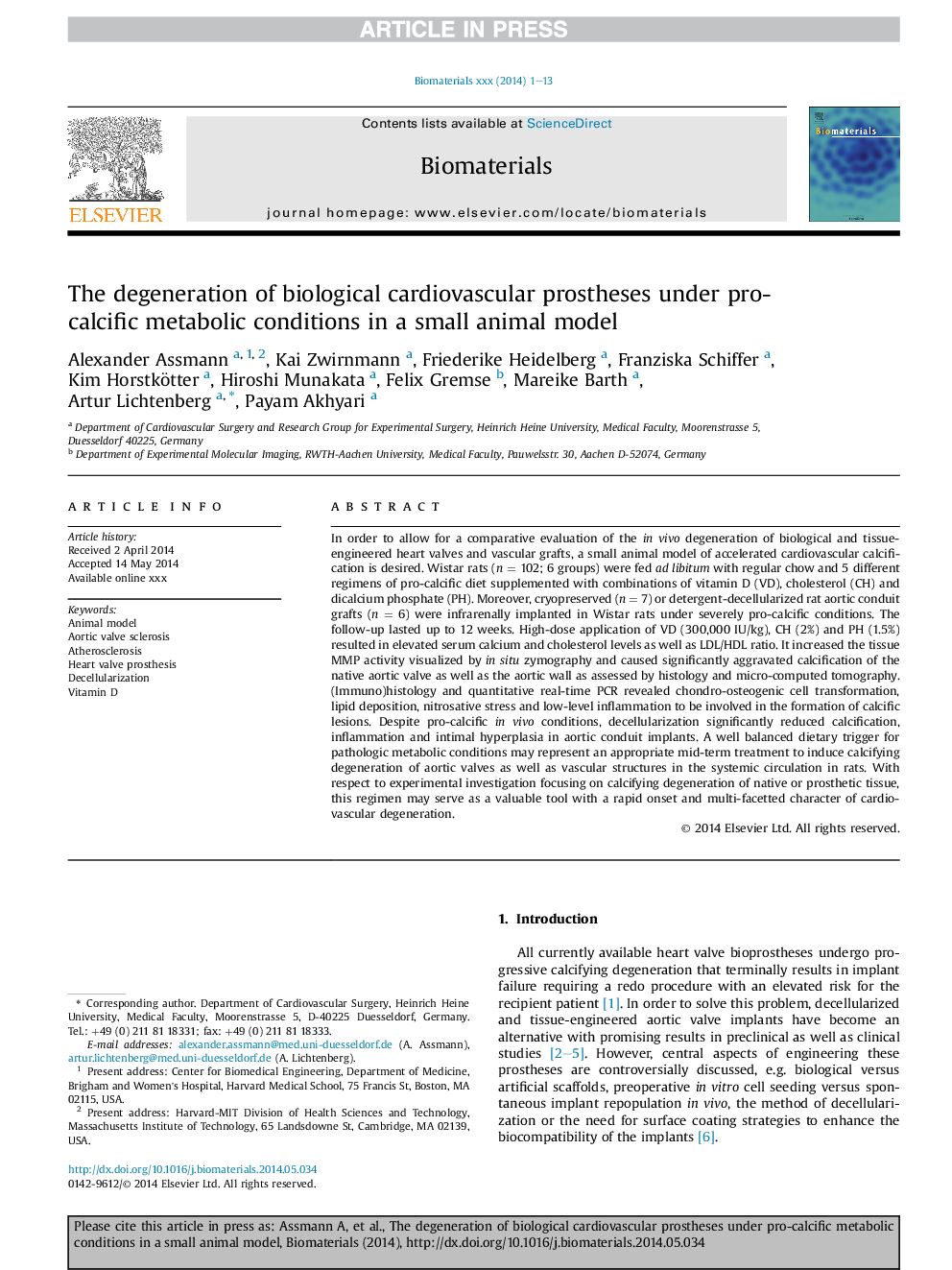| Article ID | Journal | Published Year | Pages | File Type |
|---|---|---|---|---|
| 10227218 | Biomaterials | 2014 | 13 Pages |
Abstract
In order to allow for a comparative evaluation of the in vivo degeneration of biological and tissue-engineered heart valves and vascular grafts, a small animal model of accelerated cardiovascular calcification is desired. Wistar rats (n = 102; 6 groups) were fed ad libitum with regular chow and 5 different regimens of pro-calcific diet supplemented with combinations of vitamin D (VD), cholesterol (CH) and dicalcium phosphate (PH). Moreover, cryopreserved (n = 7) or detergent-decellularized rat aortic conduit grafts (n = 6) were infrarenally implanted in Wistar rats under severely pro-calcific conditions. The follow-up lasted up to 12 weeks. High-dose application of VD (300,000 IU/kg), CH (2%) and PH (1.5%) resulted in elevated serum calcium and cholesterol levels as well as LDL/HDL ratio. It increased the tissue MMP activity visualized by in situ zymography and caused significantly aggravated calcification of the native aortic valve as well as the aortic wall as assessed by histology and micro-computed tomography. (Immuno)histology and quantitative real-time PCR revealed chondro-osteogenic cell transformation, lipid deposition, nitrosative stress and low-level inflammation to be involved in the formation of calcific lesions. Despite pro-calcific in vivo conditions, decellularization significantly reduced calcification, inflammation and intimal hyperplasia in aortic conduit implants. A well balanced dietary trigger for pathologic metabolic conditions may represent an appropriate mid-term treatment to induce calcifying degeneration of aortic valves as well as vascular structures in the systemic circulation in rats. With respect to experimental investigation focusing on calcifying degeneration of native or prosthetic tissue, this regimen may serve as a valuable tool with a rapid onset and multi-facetted character of cardiovascular degeneration.
Keywords
Related Topics
Physical Sciences and Engineering
Chemical Engineering
Bioengineering
Authors
Alexander Assmann, Kai Zwirnmann, Friederike Heidelberg, Franziska Schiffer, Kim Horstkötter, Hiroshi Munakata, Felix Gremse, Mareike Barth, Artur Lichtenberg, Payam Akhyari,
